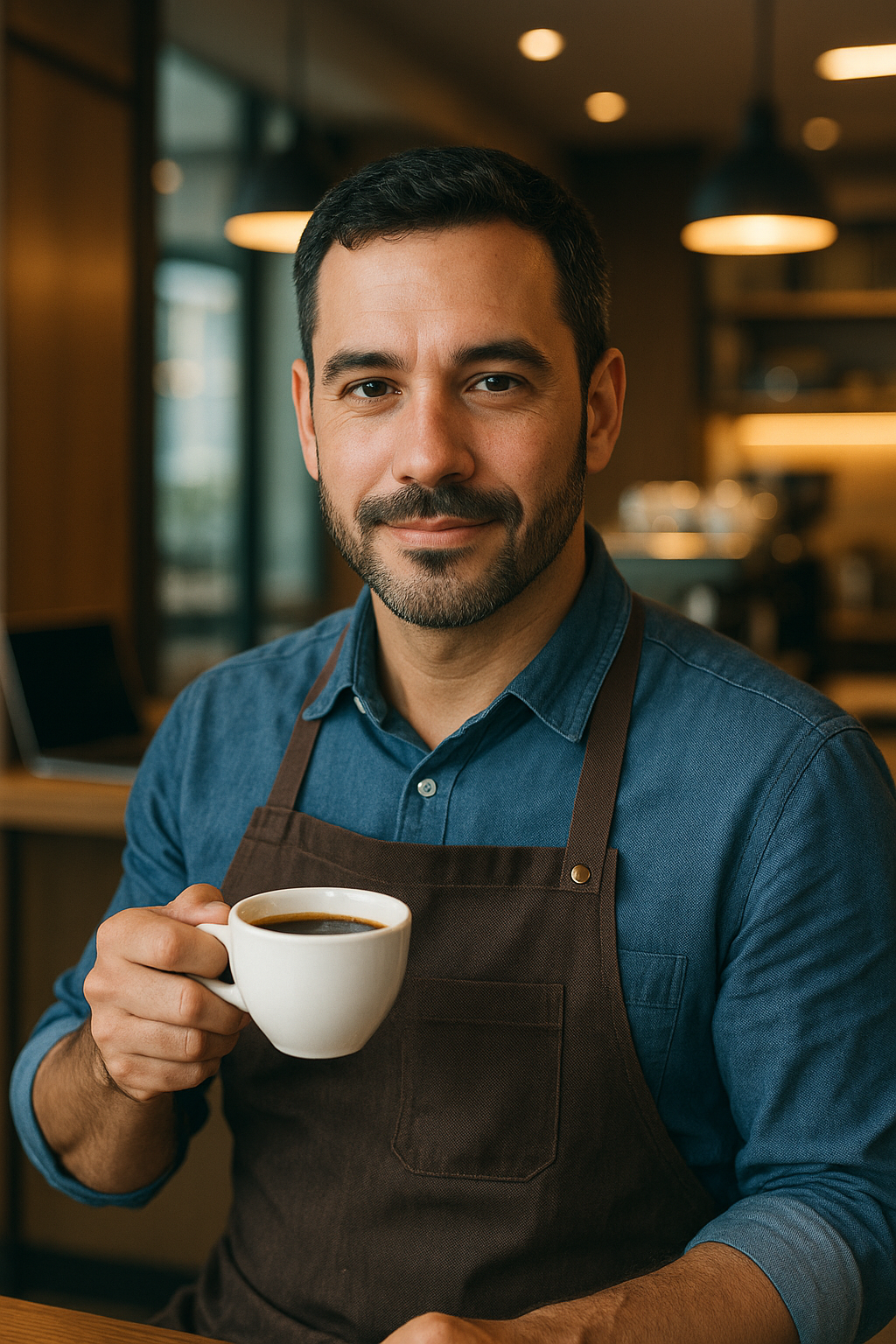Throughout history, coffee has been far more than a simple drink. It has fueled revolutions, inspired writers, and energized great thinkers.
In many cultures, coffee is closely tied to intellectual life, representing not only stimulation and focus but also creativity, dialogue, and dissent.
From 17th-century European coffeehouses to modern-day university cafés, the association between coffee and the life of the mind has endured and evolved.
In this article, we’ll explore how coffee became a symbol of intellectualism, tracing its journey from religious rituals to revolutionary ideas, academic debates, and artistic inspiration.
The Origins: Coffee and Spiritual Awakening
Coffee’s link to intellectual pursuits dates back to its earliest uses. In 15th-century Sufi monasteries in Yemen, coffee was used to aid late-night meditation and prayer. The stimulating effects of the drink helped the Sufis maintain spiritual focus during extended hours of devotion.
This early use already connects coffee with higher thinking—not in academic terms, but spiritual. The drink was more than refreshment; it was a tool for concentration and enlightenment.
Coffeehouses in the Islamic World: Centers of Conversation
By the 16th century, coffeehouses began to appear in major Islamic cities such as Cairo, Mecca, and Istanbul. Known as qahveh khaneh, these were not just places to drink coffee—they were hubs of intellectual and artistic exchange.
In these early coffeehouses, people gathered to read poetry, play music, discuss philosophy, and debate politics. The coffeehouse became a public salon where ideas could flourish. It’s no surprise that authorities in some areas tried to ban them, fearing that such gatherings encouraged dissent.
The coffeehouse was, even then, a place where thinking was power.
The European Enlightenment and the Rise of the Coffeehouse
When coffee reached Europe in the 17th century, it brought with it not just a new flavor but a new way of gathering and thinking. Coffeehouses quickly gained popularity in cities like London, Paris, and Vienna.
Unlike taverns or pubs, where alcohol dulled the senses, coffee sharpened the mind. People could stay alert, engage in serious conversation, and digest complex ideas over a cup of coffee. The English called them “penny universities”—for the cost of a penny, you could buy a coffee and access intellectual debates.
London’s Coffeehouse Culture
In London, each coffeehouse had its own theme or clientele. One might attract politicians, another writers, and another scientists. Famous patrons included Isaac Newton, Samuel Pepys, and Jonathan Swift.
The coffeehouse became an extension of the university—a space for people outside of academia to exchange ideas and knowledge. Newspapers were shared, essays were drafted, and philosophical societies were formed over coffee.
The Age of Revolutions: Coffee and Dissent
In the 18th and 19th centuries, coffeehouses played a vital role in shaping political and social movements. In France, they were crucial in spreading the ideas of the Enlightenment and, eventually, the French Revolution. In America, they became spaces where colonial resistance was organized.
The association between coffee and freedom of thought became stronger. Drinking coffee was no longer just intellectual—it was ideological.
Coffee in Academic and Literary Circles
Coffee continued to be a staple in academic settings through the 19th and 20th centuries. Writers, poets, and thinkers often credited coffee as a muse or mental catalyst.
Parisian Cafés and the Existentialists
In postwar Paris, cafés became iconic meeting spots for existentialist thinkers like Jean-Paul Sartre and Simone de Beauvoir. At Café de Flore or Les Deux Magots, these intellectuals would discuss freedom, ethics, and the absurd over endless cups of coffee.
Their presence gave these cafés a mythic status—coffee was not just a drink, but part of the process of creating philosophy.
The Beat Generation and American Coffeehouses
In 1950s America, the Beat poets found sanctuary in coffeehouses that rejected mainstream culture. Places like Caffe Trieste in San Francisco hosted readings by Allen Ginsberg and Jack Kerouac.
Here, coffee was countercultural—it was the fuel of rebellion, of artistic nonconformity, of challenging the system.
Coffee on Campus: Academic Fuel
Even today, the connection between coffee and intellectual life is alive and well. University campuses are full of cafés, coffee carts, and library coffee corners.
Students and professors alike rely on coffee to get through early lectures, late-night study sessions, and dense reading assignments. A cup of coffee becomes a rite of passage, a token of commitment to knowledge and effort.
Beyond stimulation, coffee provides comfort, structure, and social connection—all vital in the life of a scholar.
The Third Wave: Coffee as Craft and Culture
In the 21st century, the rise of specialty coffee culture—or “third wave” coffee—has brought a new intellectual layer to the drink. Baristas talk about origin, terroir, brewing methods, and flavor notes with the same seriousness as wine sommeliers.
Coffee drinkers are encouraged to think critically about what they consume, where it comes from, and how it’s made. This has created a subculture where mindful consumption and education are central.
Even café design has shifted to reflect this intellectual atmosphere—clean lines, bookshelves, minimalist interiors, and open tables that encourage quiet work and deep thought.
Coffee as a Metaphor for Thinking
Beyond history, coffee also holds metaphorical weight in literature and popular culture. It’s often used to represent alertness, inspiration, and transition.
In books and films, characters sip coffee while writing, reading, or grappling with big decisions. It’s a visual shorthand for processing and reflection.
Coffee has become a stand-in for mental clarity, for the moments when we pause, reframe, and engage deeply with ourselves or others.
Conclusion: More Than Caffeine
So how did coffee become a symbol of intellectual life? The answer lies not just in its chemistry, but in its context. Across centuries and cultures, coffee has created space for thinking, questioning, and creating.
It’s the drink of debate and discovery, of sleepless nights spent writing, and of lazy mornings spent reading. It has lived in monasteries, revolutions, lecture halls, and smoky cafés—always close to those who seek to understand and challenge the world.
Coffee isn’t just a stimulant—it’s a statement. A companion to ideas. And in that sense, it may be the most intellectual drink of all.

Marcelo Oliveira is a coffee enthusiast and content creator specializing in barista skills, brewing methods, equipment reviews, coffee-related health insights, and fascinating curiosities from the coffee world. With a deep passion for every step of the brewing process, he turns technical knowledge into accessible and engaging content for both beginners and seasoned coffee lovers. Marcelo’s goal is to help readers appreciate the full experience of coffee—from bean to cup.
